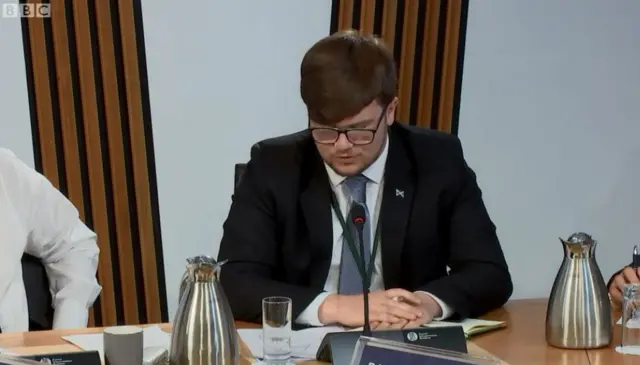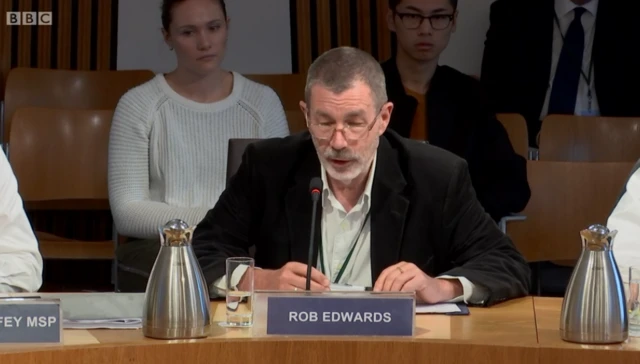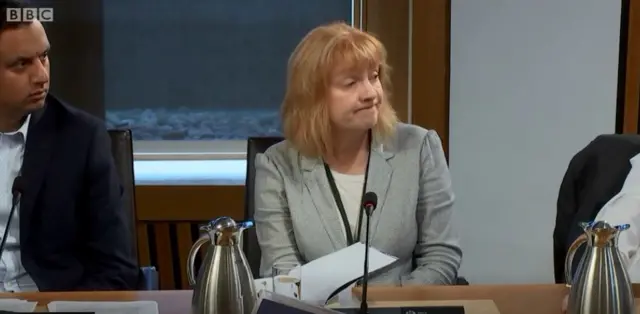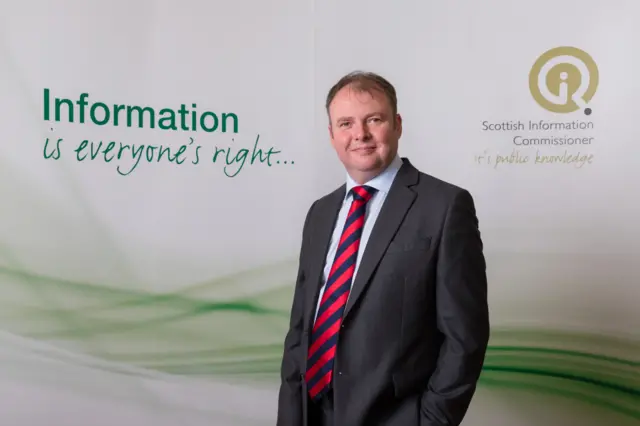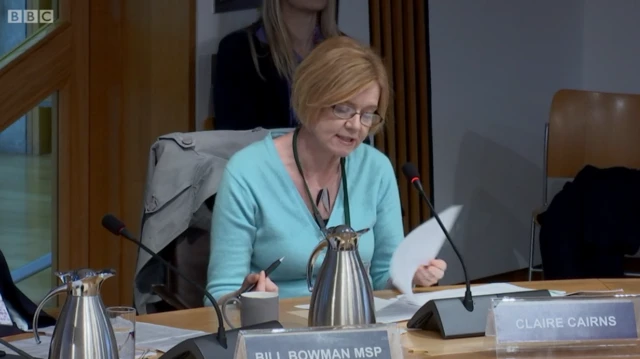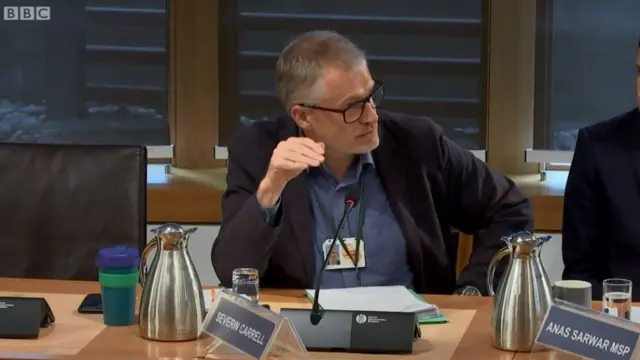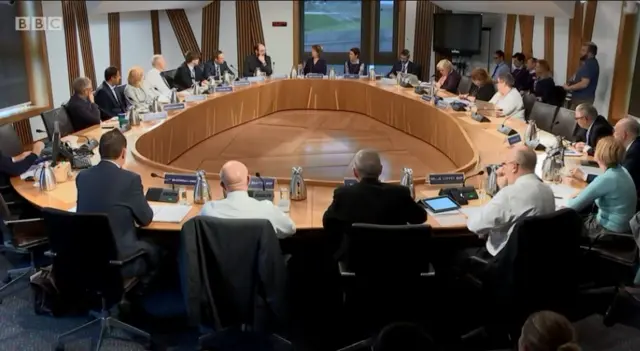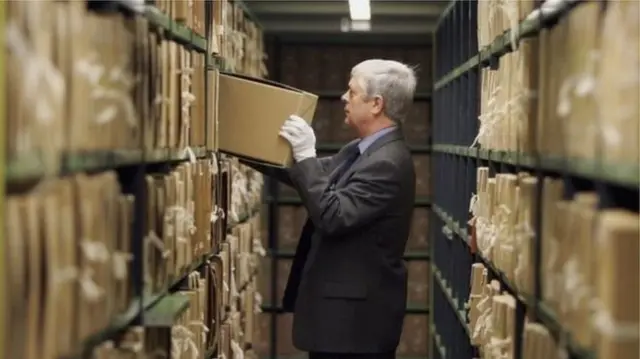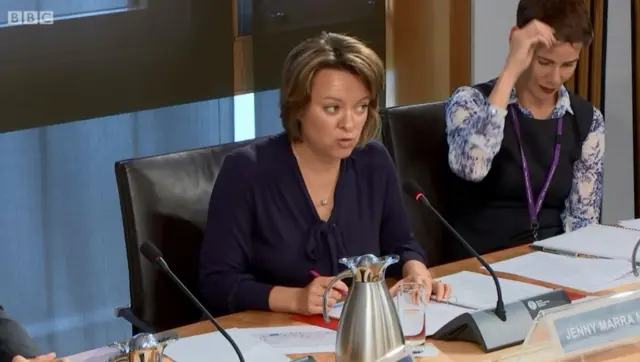Dealing with FOIs is not seen as a frontline service - UNISON Scotlandpublished at 09:59 BST 19 September 2019
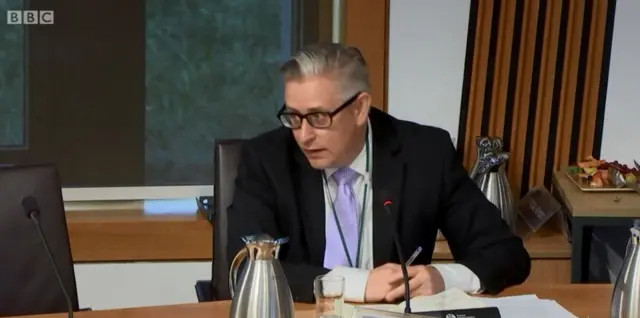 Image source, bbc
Image source, bbcStephen Low
Stephen Low insists there are two standards built in, explaining health boards will give all sorts of information, but if the service is outsourced the contract dictates what will be revealed.
The UNISON Scotland representative says dealing with FOIs is not seen as a frontline service by public bodies, but it should be.
He says the units which deal with FOIs have seen a reduction of staff and there is not enough training.
Committee convener Jenny Marra puts it to him that councils say they have to deal with vexatious requests.
Mr Low responds by asking how you define vexatious, adding FOIs are either a right or are not.
